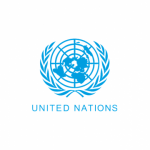MS International Federation McDonald Fellowship funds 2-year research placements for early career researchers from low- and middle-income countries. MSIF is the global movement of MS organisations, by and for people affected by MS. We network, learn from each other, mobilise and enable global collaborations, to achieve the vital goals that can only be reached by coming together as a movement. We, the Federation, are made up of national MS organisations (including their staff, volunteers and MS communities), the MSIF staff, board and committees.
The McDonald Fellowship enables early career multiple sclerosis researchers from low- and middle-income countries to work in a research institution outside of their own country. During the visit, participants either gain expertise or carry out parts of joint research projects. Following the award, we expect applicants will be able to use the newly developed expertise and networks, continuing to undertake MS research and/or patient care in low- and middle-income countries.
Type: Fellowship
Application Deadline: June 30, 2024
Value & Duration of Award: £30,000 GBP per year
The fellowship consists of a two-year grant, around £30,000 GBP per year, to cover travel and living costs, and an additional contribution of £2,000 GBP per year to the host institution
Eligible Countries: Low- and middle-income countries
Eligibility:
- Be educated to post graduate level (at least MSc, preferably PhD/MD) in an area relevant to multiple sclerosis.
- Be citizens of a low- or middle-income country (all countries with a low, lower middle or upper middle income as defined by the World Bank)
- Focus their research in an area relevant to multiple sclerosis.
Candidates must also be in one of the following situations:
- Working or studying in a low- or middle-income country (all countries with a low, lower middle or upper middle income as defined by the World Bank) at the time of application.
- Working or studying in another country on a project which started within the six months prior to application.
- Studying in another country on a Du Pré grant project supported MSIF.
How To Apply: Interested candidates should click on “Apply For This Scholarship” below
- Identify your project and field of interest.
- Contact and agree the project proposal with your host (project supervisor in a lab or clinic).
- Applicant completes all sections of the online application form.
- After Applicant submits, the Host is contacted to submit a supporting statement* using the same application form.
- Applicant asks the three referees to send their reference letters to [email protected] before the 30 June deadline.
- Applicants must read the Terms and Conditions of the Award to understand requirements around reporting and payments.
- Applicants should pay close attention to the lay summary of the application. Advice on how to write a lay summary can be found at the bottom of this page.
*The host supporting statement is filled in once the Applicant has submitted their application. The proposed host will then be emailed with instructions to fill in the supporting statement in the application form in text only. This must be done before the deadline.
Lay Summary: An integral component of the application is the 500-word lay summary.
Start your lay summary by introducing your topic of research and provide some background. Introduce what your research area is about, why it is important. Then explain the specific problem your research proposal aims to solve, e.g. a gap in the literature, a scientific conflict, etc. Finally, summarise what impact your research would have on people affected by MS.
- Use simple language: Use simple, everyday language to explain your research proposal. Avoid using complicated words and phrases that may be difficult for a 12-year-old to understand. Words like “Remyelination, “demyelination”, “myelin” are not common words and should be explained.
- Use concrete examples: Provide concrete examples to illustrate your research proposal. This will help the reader understand the research proposal more easily.
- Use analogies: Use analogies to explain difficult concepts. For example, the brain and nerves can be compared to a computer with wires that are insulated by myelin, the plastic wrapping of electric cables.
- Define technical terms: If you need to use technical terms, make sure to define them in simple language.
- Keep it short and simple: Focus on the key points and avoid going into too much detail, but use all 500 words to your disposal. Try to capture the big picture.
- Test it out: Before submitting your summary, test it out on a friend, family member, or colleague who is not educated in MS to see if they understand it. If not, make revisions until the summary is clear and easy to understand.
- Feel free to share the lay summary with the MSIF research team before submitting.
Source: https://www.msif.org/research/awards-grants-and-fellowships/mcdonald-fellowships/












